- Home
- Karin Kallmaker
Wild Things Page 2
Wild Things Read online
Page 2
"Let's not fight," I said, hearing the peacemaker weariness in my voice and hating both my tone and the necessity of the role. "It can't be undone now."
"She's been given another chance," my father said. "She's young. There's still time for her to marry within our faith."
I pressed my lips together, not trusting myself to speak civilly. Michael looked murderous but held his tongue as my mother pressed her handkerchief to her lips. She was shaking her head. I could almost hear the refrain in her head, A Jew. How could she marry a Jew? That refrain had been playing for the last two years.
Poor, poor Meg. What would she do now? Abraham's family had been only slightly more accepting of their marriage than had my parents.
"I'm very tired," I said, getting up.
"Tell me about your dinner," my mother said. "And Eric, I assume he is fine?" The wistfulness in her voice implied that she wouldn't have to ask if he had come in for coffee. I was devoutly grateful that he had not. I wasn't ready for him to witness firsthand the narrowness of my parents' minds. He already sensed some of it since he was a semilapsed Lutheran. My parents were Catholic right down to their DNA, and they'd passed the gene on to me.
"It was lovely. Eric was very proud of his sister. I thought she was quite... striking. We're having dinner with her on Sunday."
My mother's expression brightened. I was meeting some of Eric's family. It might lead to the engagement she longed for me to have. She had reminded me just last week that I wasn't getting any younger. Thirty-four was nearly a spinster, I could almost hear her thinking. I thought it myself and knew only I was to blame.
I paused long enough to give Michael's good shoulder a comforting squeeze, then finally, my heart feeling like lead, I escaped to a stinging, hot shower and my bedroom.
* * * * *
The first two years of my undergraduate career were the first and only time I'd lived away from home. Michael had been stationed at Fort Dearborn right in Chicago and visited frequently. If he hadn't been so close, my parents would never have consented to my living at the University of Chicago campus. After all, it was just an El ride away, there was no reason for me to be living on my own. Nice Catholic girls left their fathers' homes when they married, and for no other reason. When they married they became adults. Catholic girls who lived on their own were either nuns or whores.
But they had consented, most likely because I was joining the Catholic sorority, and I had enjoyed the first year immensely. For the first time, I began to form my own opinions and not simply repeat my father's dogmatic viewpoints. Having gone to Catholic school all my life, it was the first time I read history that wasn't pro-Catholic. I was amazed and stimulated by the different viewpoints. I'd written my first term paper in history on the difference between Catholic and feminist histories of the Inquisition.
I discovered that I was good at research and basked in praise of my writing. By the end of the year, I wanted to be a scholar. I wanted to know everything there was to know about the past, about how and why different people viewed the past differently. I discovered a hunger for information that surpassed any passion I'd ever known. For the first time in my life, I felt like an adult.
In my second year I met Renee Callahan and discovered more passions. Lust, self-loathing, dread fascination, and disgust.
That two-second glimpse of Renee Callahan across the banquet hall had brought back all those feelings. I hadn't known she had moved back to Chicago. I hadn't wanted to know. I had thought I had forgotten her and how she made me feel.
Huddled in my nightgown and shivering under the blankets, I prayed she hadn't seen me. I wanted to keep those memories behind me. I wanted instead the life Eric might offer me. But memories were churning, and I remembered the way her voice had sounded in my ear.
"Say that you want me," she had whispered.
Renee pressed me into the darkness behind the arched entrance to the Swift Hall cloister. Her hands were under my shirt and I broke out in goose pimples everywhere her fingers brushed.
"I can feel your heart beating," she whispered. "Say you want me."
I didn't want to want her. But my head was pounding and my body betrayed me again. It had betrayed me when I first met her. I had known immediately what she was and that my body was far too warm when she was near. My mind recoiled in horror even as my hands had found ways to accidentally brush hers.
"I want you," I whispered. The heat between my legs was so fierce I broke into a sweat.
She smiled in victory. I had vowed never to be with her again. And it had taken her only three days to wear down my resistance.
As she unhooked my bra, I tried to evade her for a moment. "Not here. Someone will find us."
"People have been doing just this under this arch for fifty years," she said. "Think of it as historical research." Her golden hair and skin shone platinum in the moonlight.
I wanted her to take me back to her dorm room. But she pulled up my bra and lightly caressed my aching nipples in the way that made me shudder.
"Take off your shirt," she whispered.
"No," I managed. "Please. Let's go back to your room."
"We will," she said. She pulled my shirt up and bent to me. I surged upward, offering my breasts to her. Her breath whispered over them, followed by the flick of her tongue. I whimpered and tried to push her head down, but she laughed softly. "Take off your shirt."
I had never felt so helpless. I knew she was manipulating me. I knew she had no feelings for me beyond lust. Trembling, I unbuttoned my blouse and slipped it off my shoulders.
She pinned my shoulders to the cold brick and her mouth was everywhere. She used her teeth to enhance the ache in my breasts. I pulled her against me, panting. My whimpers were gone, and I fell hard into her ocean of lust and need.
I forgot where we were. Her hand was gliding between my legs, and I staggered with the force of my response. Without hesitation I urged her inside me. I begged her in choking whispers to take me, to make me, to be in me —
I had forgotten so much. I had forgotten those blinding moments when my body had felt like fireworks.
I covered my head with the pillow and fought back tears. After the fireworks had come the loathing. I hated the weakness that had made me want her. I loathed myself for giving in to her demands. Demands that at first had seemed merely sexual had become increasingly humiliating and risky. Having sex in a public place had terrified me and she had used my newly-awakened passion to make me say I wanted her to have sex with me there. If we had been discovered she would have survived the fallout — nothing stuck to Renee and vice versa — but all my hopes and dreams would have been destroyed. What if someone had found us before we were done, me half naked and her on her knees, and her mouth covered with my unmistakable desire? Why had she needed to prove she could make me do almost anything?
What would have happened if she had been as gentle as Eric, as undemanding, as kind? Would I have been filled with so much self-hate? But that wouldn't have mattered. It still would have been wrong. A sin. I knew what my parents would have done if they had known.
The only positive thing to come from the four months I had been in thrall to Renee was finally breaking free of her. Finally finding a way to say no, I had salvaged some self-respect. But not before she had proved to me beyond any doubt that I wanted her and would do almost anything to have her.
Remembering what it had been like to be with her had stirred my pulse. I might not want her any more, but I realized that I wanted passion. I told myself I would find it with Eric eventually. I promised myself. I prayed.
2
Stolen waters are sweet, and bread eaten in secret is pleasant.
—Proverbs 9:17
As I walked through the warm haze of early fall to the train the next morning, I went through my usual school year routine, stopping in for a cinnamon bun from the bakery that was just out of sight from my parent's house. I'd been stopping in for this treat regularly since I was in my teens. Then it had b
een in defiance of my mother's demand that I fit into her first cotillion dress for my first cotillion — my mother always was and always will be two sizes smaller than me. She'd always bragged of a figure the same size as Jackie Kennedy's, that is until Jackie remarried. After that Jackie was never mentioned. My daily cinnamon bun was an old delicious habit with a dash of defiant memory.
On State Street I changed to the El, which would take me to Washington Park for the faculty shuttle. The uneventful ride gave me the opportunity to rest my eyes after a poor night's sleep. My thoughts turned constantly to my sister's plight. Poor Meg. What would she do now? My worry for Meg kept me from thinking about the troubling feelings Renee had reawakened.
Low clouds hung over Lake Michigan as the train emerged south of downtown along State Street. The magnificent skyline faded away to the memorials and faux Grecian colonnades of Soldier Field, then yielded to the mellow brick and ivy of Hyde Park, which was bordered on the south by the University of Chicago.
The trip south I took every weekday was a journey of extremes. From my parents' all-white neighborhood in Elmwood Park of extremely erect middle-and upper-class Polish Catholics, I traveled through the pristine Miracle Mile and Loop to the edge of Chicago's south side, where poverty and despair mix with a flair and tenacity for life that oddly pleased me. From the window of my office, I could watch the endless games of basketball and hear the laughter and fighting. It reminded me that my life was a cloistered one and there was, in fact, a world out there where people fought for survival instead of research grants.
My father called them "those people," and by that he meant African Americans, not the Polish and the Swedish Americans who also lived in the south side.
Those people, he said, only took and never gave. It did no good to ask him who he thought had done the backbreaking labor to craft Chicago's great buildings and roadways. He would have said it was the immigrant Swedes, the Norwegians, the Finns, and the Poles, like his great-grandfather. He was right, to a point. But he failed to see that all the grunt work the immigrants had not wanted to do had been put on the blacks fleeing the South, at a quarter of the wage and without benefit of union stewardship. I had certainly not seen that until I had studied history from perspectives other than the prevailing white one. As the train slowed for my Washington Park stop, I entered into a full-scale mental argument with both my parents, knowing I was stirred up because of their response to Meg's crisis.
I argued with my mother's self-righteousness. She held herself above most women because she had never worked outside the home, a sacrifice she said she had made for her children. No matter that the Altar Society and other volunteer work at the Cathedral had easily been a full-time commitment. A long string of women cared for me as I grew up — women who worked outside their own homes raising other people's children. My mother had pity and disdain for them and lived on in her fantasy of having raised three children single-handed.
I took issue with my father's story of proud immigrant stock who had had nothing when they came to America and had never received help from anyone. The only time I had ever argued with him had been over English-only laws. I had finished my first year of college and felt like I would finally be able to convince him of something. When my father said he thought Illinois should be English-only, I had answered that he was certainly lucky it hadn't been when his grandfather had arrived. When I asked how his grandfather had learned English, for his immigrant great-grandfather had never learned it, he insisted that his grandfather had picked it up on his own. I reminded him that his grandfather had learned English in a public school where the teachers spoke Polish. The Swedes had had Swedish-speaking teachers in their neighborhoods, and so on. And while sometimes the churches had held mass in Latin, everything else was in the language of the community, and the neighborhoods themselves were rightfully called little Polands, little Norways, and so on. How could he now resent little Vietnam and little Mexico and insist that only English be spoken in those neighborhood schools?
My stomach still turned over as I remembered how angry he'd been. He hadn't struck me since I was fifteen, and I had forgotten he could lose control. He shook me so hard my arms bruised. My head snapped back and I fell, but I couldn't remember if he had shoved me or if I lost my footing. He stood over me and thundered in Polish, "Remember who you are, girl!"
I remembered. I remembered, too, Meg creeping into the kitchen after he stormed out. She was only eight at the time and didn't understand that my tears were angry ones. But she learned the lesson I'd forgotten, and ever after her method of getting her way was a pretended weak and gentle disposition. She'd played the part so long she'd forgotten it was a part. The lesson I re-learned was not to argue with my father. Being an adult made no difference to his physical intimidation.
I walked briskly along the midway from the shuttle stop, arguing fitfully in my head, then turned into the first gate. As usual, my mind stilled as I felt the university claim me. Thoughts of the outside world were easy to put aside, and my mind unfailingly turned to academic matters. I could forget my family and sigh happily as I walked across the courtyard, secure with the place I had earned in the academic world.
Most of my colleagues had offices at home, but the university provided me with an office and I used it. I came to the university every weekday, regardless of when my classes were scheduled. If I wasn't teaching, attending faculty meetings, or having office hours, I did research and wrote at my computer. This quarter I only had classes Monday, Wednesday, and Friday. Since it was Thursday, I planned to get a lot of research done before I went to a radio interview.
I was just hanging up from a frustrating conversation with Library Services when James, my closest friend at work, sidled into my office with his usual smirk.
I sat back in my chair. "And today's word is?"
"Pertinacious" he elocuted clearly.
"My parents are pertinacious," I said. "Stubborn and perversely persistent and sometimes foolishly ignorant."
He scowled as he always did when I knew the word and straightened the framed Vanity Fair cover featuring Emma Thompson in armor. The imperfection of my wall hanging corrected, he dropped into my guest chair. "What do you think of this tie?"
I pondered the elegant navy silk with small but plainly discernible bananas. "I'm ape for it."
He sniffed, not willing to admit my sense of humor had any element of wit. "It's supposed to suggest that I could be peeled."
I blinked. "Who do you want to peel you?"
"No one at this third-rate institution of higher learning."
His temper was foul this morning, more so than usual. "Did they cut your teaching hours or something?"
He glared at me and didn't deign to answer. Instead, he smoothed his mustache and said, "What have your parents done that you call them pertinacious, you ungrateful child?"
I told him about Meg and that my father had actually said, with her husband in his grave less than a week, that perhaps she would marry within our faith in the future. "It's just like that whole spiel he has about his family never getting any help from anyone when they immigrated. I'm so tired of it, and every year he gets more closed-minded."
James elaborately stifled a false yawn, raised one eyebrow, and said, "How old are you?"
"Thirty-four. Why?"
"Where do you live?"
I glared at him. "Very funny. My choices are eternal damnation for leaving my father's home still unmarried or insanity from living at home."
His expression shifted from his usual hauteur to what might have been a flicker of a painful memory.
"I am going to break all my rules about giving advice."
I laughed. "You give advice all the time! I stopped wearing white stockings, remember?"
"Stocking, shmockings. That was just common sense, not advice. Same as keeping your hair short so it curls on its own. Just common sense."
"Piffle." I gave him what I hoped was a scathing glance. "What do you know about fashion?"
He'd been right about the Marcia Brady hair. My current short, neatly fluffed style suited me much better. "Okay, let me have it."
"So here's my advice. Ahem. This is my advice and it is the advice I'm giving you. Ready?"
"Yes," I said patiently. When he was in this mood there was no hurrying him. Any attempt to do so would just slow him down.
He cleared his throat dramatically. "This is the beginning of my advice. Just accept the fact that you're damned in their eyes already. You need to realize you've really got nothing to lose. This is the end of my advice."
Nothing to lose. I opened my mouth to say I had plenty to lose, then closed it again. Finally I managed, "Thank you, James, it's so comforting talking to you."
He smirked and helped himself to my New York Times. "I'll bring you my Trib when I'm done. Good luck on the radio thing."
I spent the next hour thumbing distractedly through a reference book and unsuccessfully trying to make a list of what I had to lose if my parents told me never to darken their door again. At the end of the hour I'd made a few notes and citations, but my list was still blank. I felt thoroughly out of sorts as I grabbed my satchel and headed for the El again.
* * * * *
Thursdays are usually non-stop research days, but this particular Thursday was interrupted by an interview at the public radio station that served all the local colleges. It was based out of Roosevelt University, which was only a few El stops from me at the southernmost end of the Miracle Mile where Michigan Avenue meets Congress Parkway.
I'd done one-on-one print interviews for the alumni magazine, the student paper, and a local weekly paper, but this was my first live broadcast. The late morning was growing warm and sticky and I was glad I'd opted for cotton from the skin out. I hoped my simple shirtwaist dress wasn't too casual.

 Finders Keepers
Finders Keepers My Lady Lipstick
My Lady Lipstick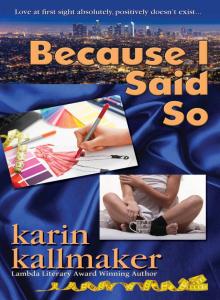 Because I Said So
Because I Said So Blue Collar Lesbian Erotica
Blue Collar Lesbian Erotica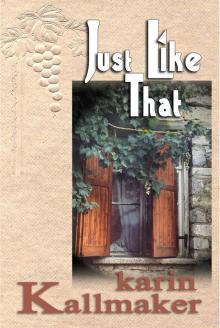 Just Like That
Just Like That In Deep Waters_Cruising the Seas
In Deep Waters_Cruising the Seas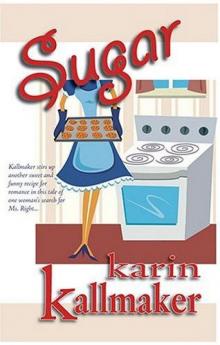 Sugar
Sugar Love by the Numbers
Love by the Numbers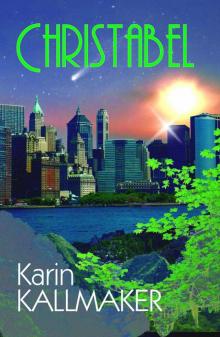 Christabel
Christabel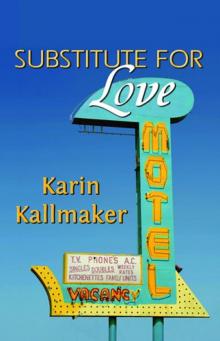 Substitute for Love
Substitute for Love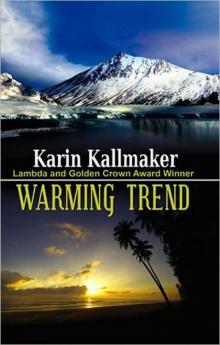 Warming Trend
Warming Trend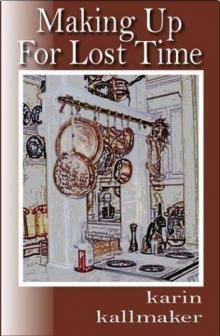 Making Up for Lost Time
Making Up for Lost Time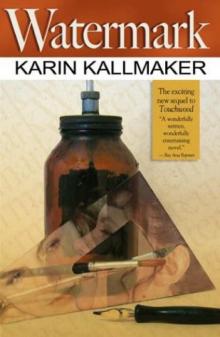 Watermark
Watermark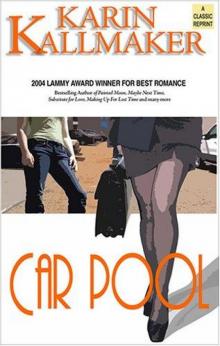 Car Pool
Car Pool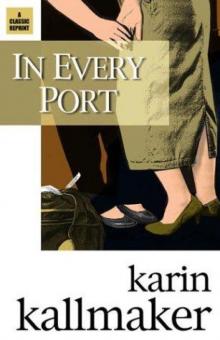 In Every Port
In Every Port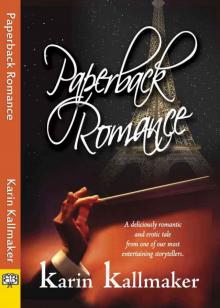 Paperback Romance
Paperback Romance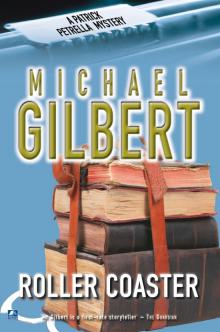 Roller Coaster
Roller Coaster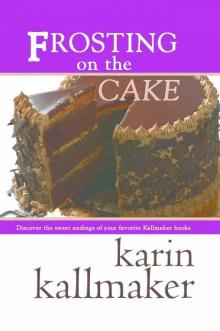 Frosting on the Cake
Frosting on the Cake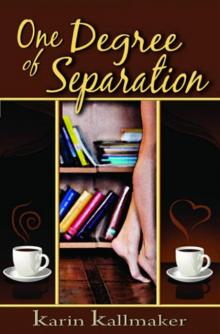 One Degree of Separation
One Degree of Separation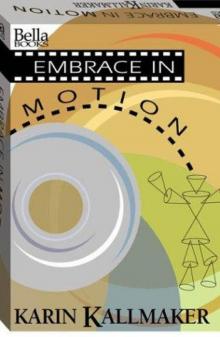 Embrace in Motion
Embrace in Motion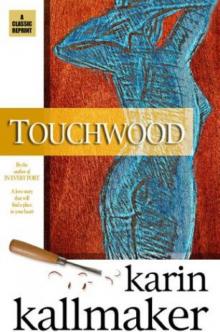 Touchwood
Touchwood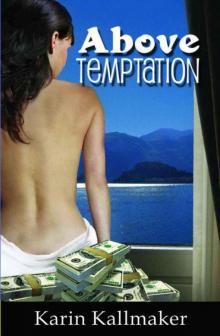 Above Temptation
Above Temptation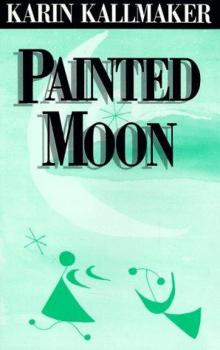 Painted Moon
Painted Moon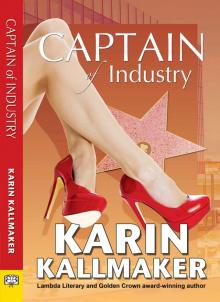 Captain of Industry
Captain of Industry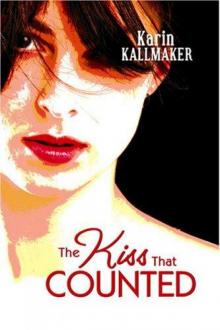 The Kiss That Counted
The Kiss That Counted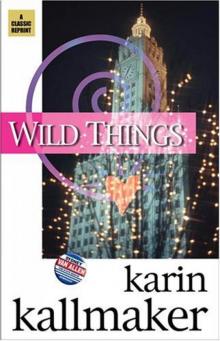 Wild Things
Wild Things